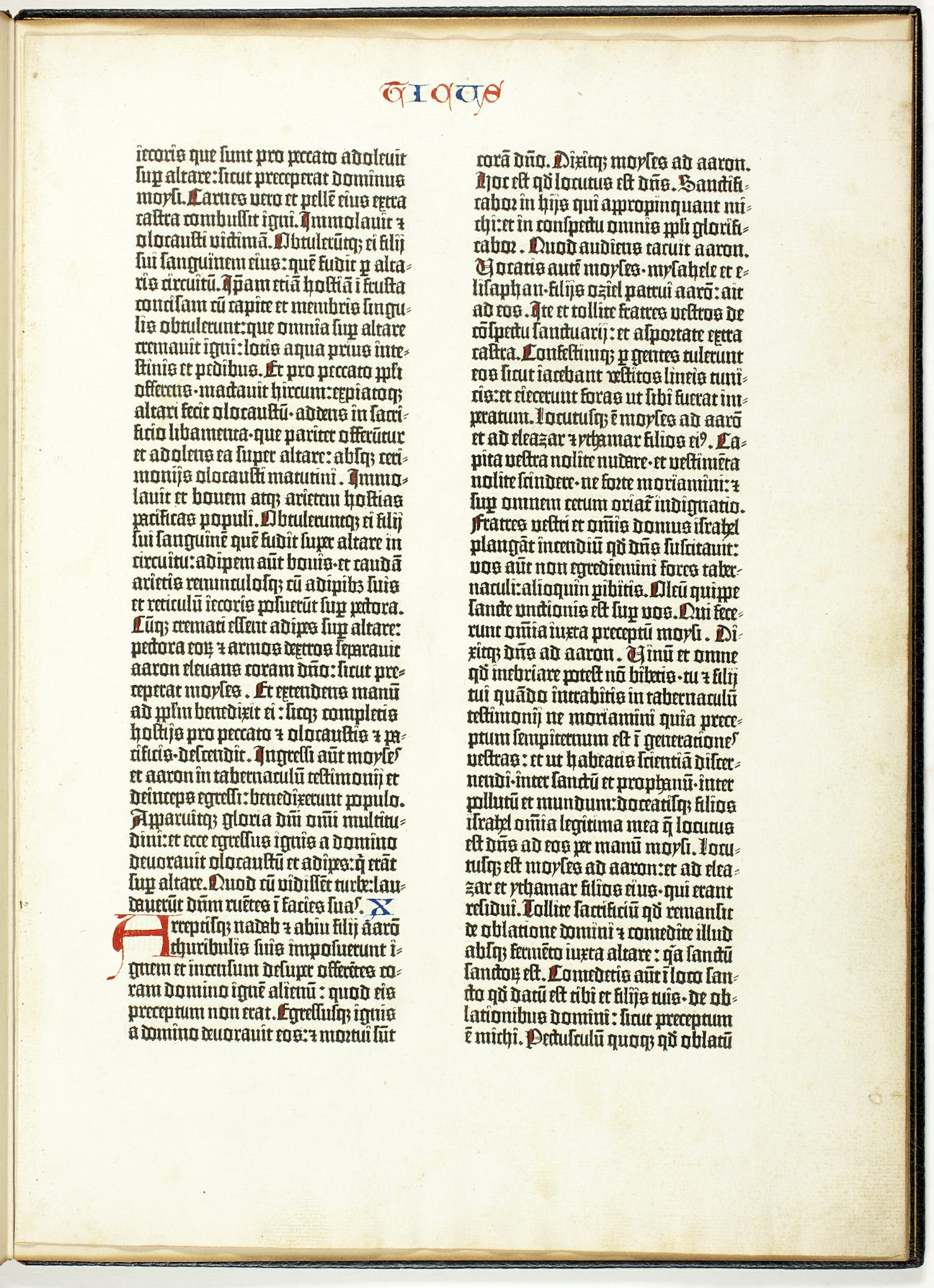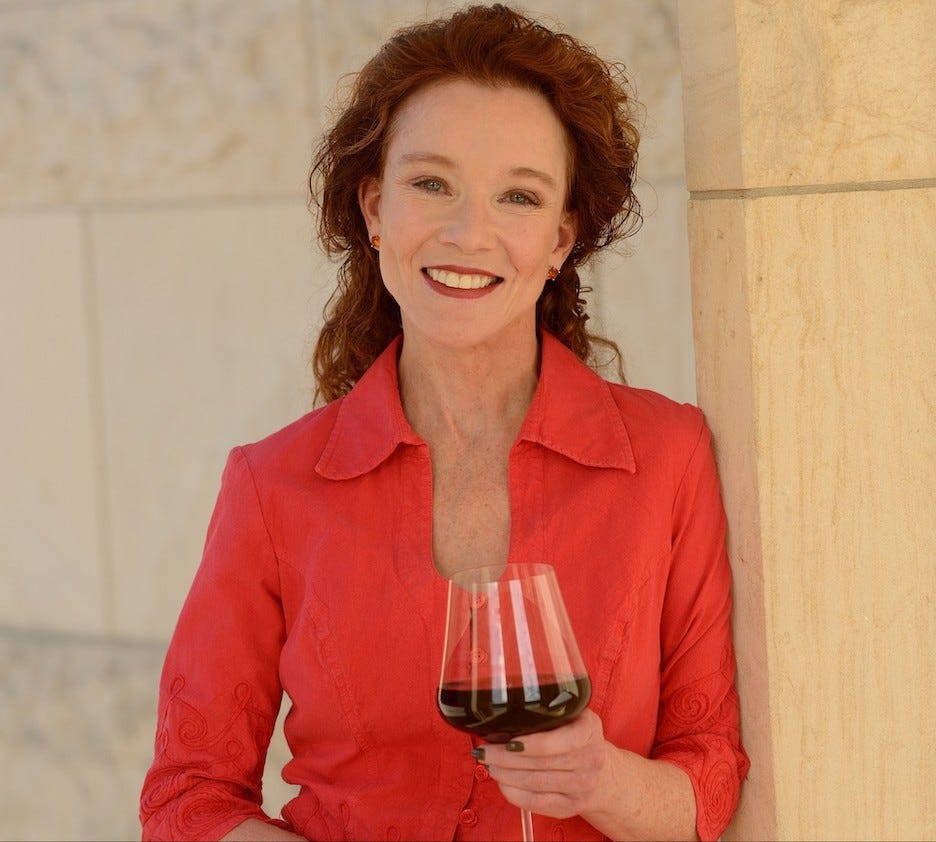If you wanted to make a list of the Top 3 Most Influential Wine Books, that list would be illegitimate without the inclusion of Karen MacNeil’s “Wine Bible”. I say this by way of noting that the third edition of this essential classic has just been released.
MacNeil’s “The Wine Bible” was first published in 2001. It got a second edition in 2015. This new third edition hit the shelves earlier this month. The book, which comes in at nearly 800 pages, has, in previous editions, sold nearly a million copies. As far as I can tell, “The Wine Bible” has never fallen outside Amazon’s top 20 list of wine books and has been at the top of that list for most of the past 20 years. The odds are very high that any brave soul studying for the WSET, the Master Somm test, or the Master of Wine exam has had Karen’s book open on their table within arm’s reach for most of their studies.
When I spoke with Karen about the new edition she told me in passing that the first edition took her just over 10 years to write. I’m pretty steadfast when it comes to muscling through a project. I generally put my head down and do what’s necessary to finish what I start. But I can’t imagine working on a writing project for a decade. Nor can I imagine anyone else writing this particular Bible.
Karen has a very distinct writing style that, after spending a bit of time with the Bible, starts to sound very familiar. Her’s is a chatty, witty, erudite approach to writing about wine. There is a comforting, authoritative air about her explanations of terroir, soil composition, Napa wine history, the hills of Tuscany, the nature of Riesling, The Golan Heights winemaking, fermentation, wine tasting, First Growths, and nearly every other wine-related subject. But at the same time, her writing all throughout the Bible has a "lean-in-close-and-whisper-in-your-ear-hey!-did you know that…” quality to it all.
At the same time, MacNeil is not a name-dropper and I suspect there are few people who have accumulated the cache of names she has over the years. Moreover, if she does have strong feelings about certain controversial wine subjects (and I know she does) Karen does not treat these opinions—informed as they surely are—as fodder for Bible content. This takes a certain kind of restraint, not to mention respect, for your reader and the entire Bible project’s purpose.
The new edition has tremendous amounts of new and additional material from the 2nd edition. This includes entirely new sections, for example, on Croatia, Isreal, China, and Japan’s wine industries.
The most unexpected and significant difference between this Bible and past Bibles is the photography. It’s in color. This would not be a big deal if there had only been relatively few photos in past editions. In fact, there must be 100s of photos, but in the past, they were all in grey. Now they are all in color. I can’t express how this change enlivens the Bible and further draws the reader in. From an aesthetic perspective, it was a brilliant decision.
What I find most fascinating about this 3rd edition of the Bible is what I find interesting about almost all new editions of past classics: the subtle changes in older material. The new Bible is not an entirely new book. It’s a new edition; an update. Much of the material is the same. But there are so many cases in which Karen has chosen to re-write small or even large portions of the book. In some cases, this kind of updating is to accommodate new information or additional information. But sometimes it’s updated to accommodate a different perspective by the author. And this is what is really interesting to devotees of scripture—new interpretations.
Take the foundational notion of “Terroir”. In the first edition of The Bible, Karen explains in rather short order that Terroir is all those things that make up the physical environment that influences the cultivation of the grapes. It is a straightforward explanation of a fairly arcane and complex topic.
In the second edition of The Bible, she puts the emphasis on the near theological implications of the idea of terroir when she writes, “Is a wine great because of natural forces that have come together in near platonic perfection or must all great wines be ‘realized’ by the skilled hand of the winemaker?” And she ends with Randall Grahm telling us that terroir is “the question of our time—the enological equivalent of ‘Is God dead?”
The Terroir entry in the latest edition of The Wine Bible is different still. Along with the information related in the first two editions, now Karen gives us some insight into how the 11th-century Cistercian monks in Burgundy were among the first to both notice and express the idea that wines made from a specific place were consistently unique in character for having been grown in that place. However, Mr. Grahm’s quote concerning God and Terroir is gone. Instead, she adds this bit of information:
“For wine drinkers, these [issues surrounding terroir] are big, juicy questions—questions that, once in your wine consciousness, make wine ever more mentally and emotionally compelling (At least for some of us. It’s perhaps instructive to note the results of a survey of 1,500 British adults conducted a few years ago. The poll found that 30 percent of respondents thought that terroir was a genre of French horror film, while 28 percent thought it was a breed of dog."
The changes from one edition to another reflect not only changing emphasis over time on a particular idea (such as Terroir) but also, I think, a change of attitude by the author. And this is what makes perusing different editions of books, especially the Wine Bible, so enjoyable.
The Wine Bible is and remains the indispensable volume for experienced wine lovers and aspiring wine lovers. It’s all in there (the who, what, where, when, how, how much, why, and what-for of it) and it is delivered with style, humor, and a scholar’s care. MacNeil’s remarkable amount of research and her decades of thinking about the meaning and importance of wine is translated here into something serious wine lovers shouldn’t live without.
And by the way, about that list? It includes The Wine Bible, The Oxford Companion To Wine, and The World Atlas of Wine.
The 3rd edition of Karen MacNeil’s Wine Bible can be purchased at Amazon, of course. But, if you want a signed edition of either the hardcover ($55.00) or the softcover ($39.99) you can get it directly from Karen.






